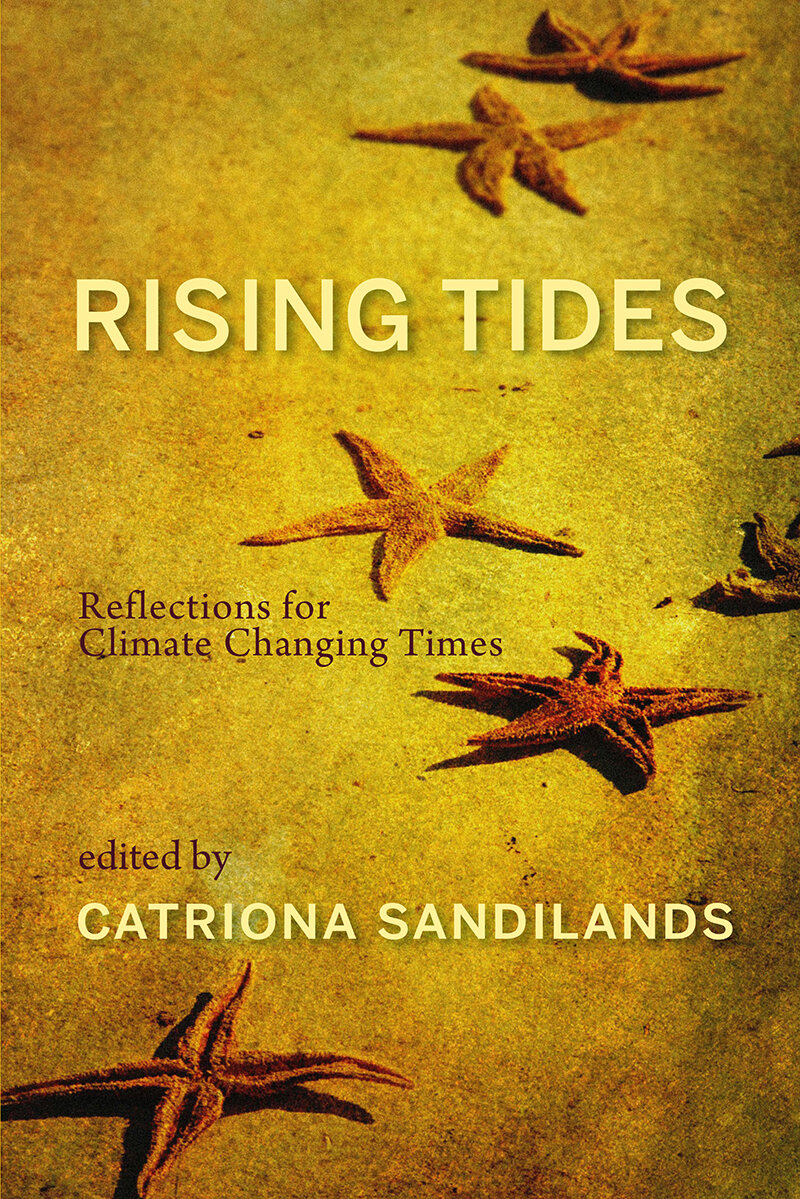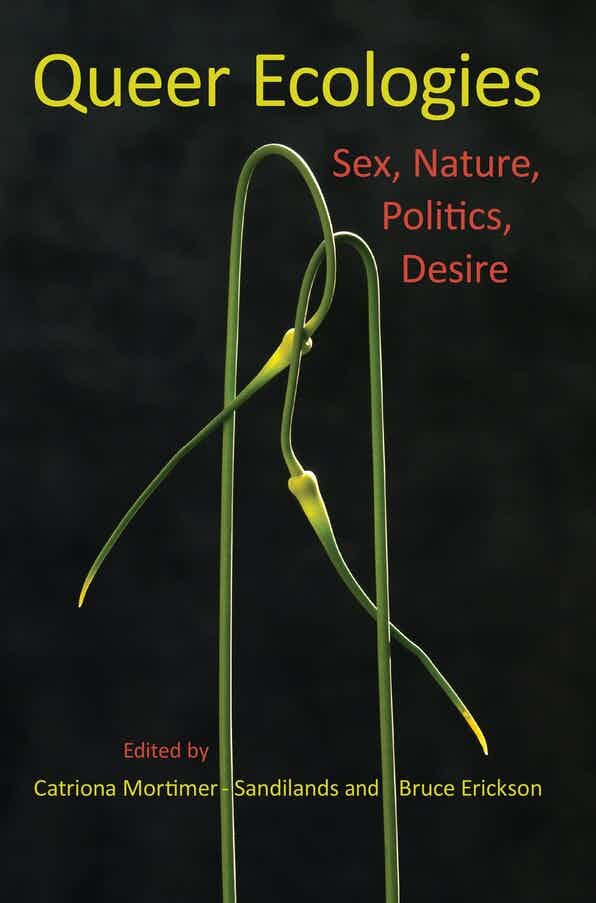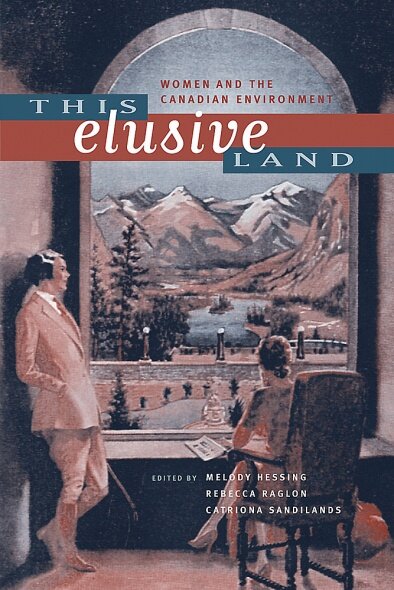



2019
Rising Tides: Reflections for Climate Changing Times
Ice melt; sea level rise; catastrophic weather; flooding; drought; fire; infestation; species extinction and adaptation; water shortage and contamination; intensified social inequity, migration and cultural collapse. These are but some of the changes that are not only predicted for climate changing futures, but already part of our lives in Canada. Although these transformations are global and dramatic, they are also experienced locally and particularly by people who are struggling to understand the impacts of climate change on their daily lives.
Rising Tides is a collection of short fiction, creative non-fiction, memoir and poetry addressing the past, present and future of climate change. Bringing stories about climate change—both catastrophic and subtle—closer to home, this new anthology inspires reflection, understanding, conversation and action. With more than forty purposefully written pieces, Rising Tides emphasizes the need for intimate stories and thoughtful attention, and also for a view of climate justice that is grounded in ongoing histories of colonialism and other forms of environmental and social devastation.These stories parallel the critical issues facing the planet, and imagine equitable responses for all Canadians, moving beyond denial and apocalypse and toward shared meaning and action.
Contributors to the anthology include established writers, climate change experts from different backgrounds and front-line activists: Carleigh Baker, Stephen Collis, Ashlee Cunsolo, Ann Eriksson, Rosemary Georgeson, Hiromi Goto, Laurie D. Graham, David Huebert, Sonnet L’Abbé, Timothy Leduc, Christine Lowther, Kyo Maclear, Emily McGiffin, Deborah McGregor, Philip Kevin Paul, Richard Pickard, Holly Schofield, Betsy Warland, Evelyn White, Rita Wong and many more.
2010
Queer Ecologies: Sex, Nature, Politics, Desire
Edited with B. Erickson
Treating such issues as animal sex, species politics, environmental justice, lesbian space and "gay" ghettos, AIDS literatures, and queer nationalities, this lively collection asks important questions at the intersections of sexuality and environmental studies. Contributors from a wide range of disciplines present a focused engagement with the critical, philosophical, and political dimensions of sex and nature. These discussions are particularly relevant to current debates in many disciplines, including environmental studies, queer theory, critical race theory, philosophy, literary criticism, and politics. As a whole, Queer Ecologies stands as a powerful corrective to views that equate "natural" with "straight" while "queer" is held to be against nature.
Contributions by Stacy Alaimo, David Bell, Giovanna Di Chiro, Andil Gosine, Katie Hogan, Gordon Brent Ingram, Ladelle McWhorter, Rachel Stein, Noël Sturgeon and Nancy C. Unger
2004
This Elusive Land: Women and the Canadian
Edited with M. Hessing and R.Raglon
This Elusive Land introduces readers to women’s perceptions and experiences of the Canadian natural environment. This multidisciplinary anthology discusses the ways in which women integrate the social and biophysical settings of their lives, featuring a range of contexts and issues in which gender mediates, inspires, and informs a sense of belonging to and in this land. In particular, the historical association of women with “domestic” nature is challenged by the investigation of women’s lives in a broad range of environments.
The collection begins with an introduction to literatures on women and the environment, and to Canada within ecological feminist conversations. The first section discusses the invisibility of women in traditional accounts of Canada's exploration and settlement, pointing to the literary, historical, and geographic significance of women's experiences in a variety of landscapes. Section two develops the ways in which the natural environment is a source of social and economic livelihood, with particular emphasis on fishery, forestry, agriculture, and parks. The third section explores environmental politics through a feminist perspective. The book concludes with a discussion of new directions for a culturally and ecologically diverse Canadian environment.
This book contributes to women’s studies through its environmental focus; informs environmental studies with a range of feminist perspectives; and complements Canadian studies by integrating disciplinary perspectives of the Canadian experience from the humanities and social sciences.
1999
The Good-Natured Feminist: Ecofeminism and the Quest for Democracy
“A foundational statement of the democratic promise of ecofeminism.”
The Good-Natured Feminist inaugurates a sustained conversation between ecofeminism and recent writings in feminist postmodernism and radical democracy. Starting with the assumption that ecofeminism is a body of democratic theory, the book tells how the movement originated in debates about “nature” in North American radical feminisms, how it then became entangled with identity politics, and how it now seeks to include nature in democratic conversation and, especially, to politicize relations between gender and nature in both theoretical and activist milieus
https://www.upress.umn.edu/book-division/books/the-good-natured-feminist